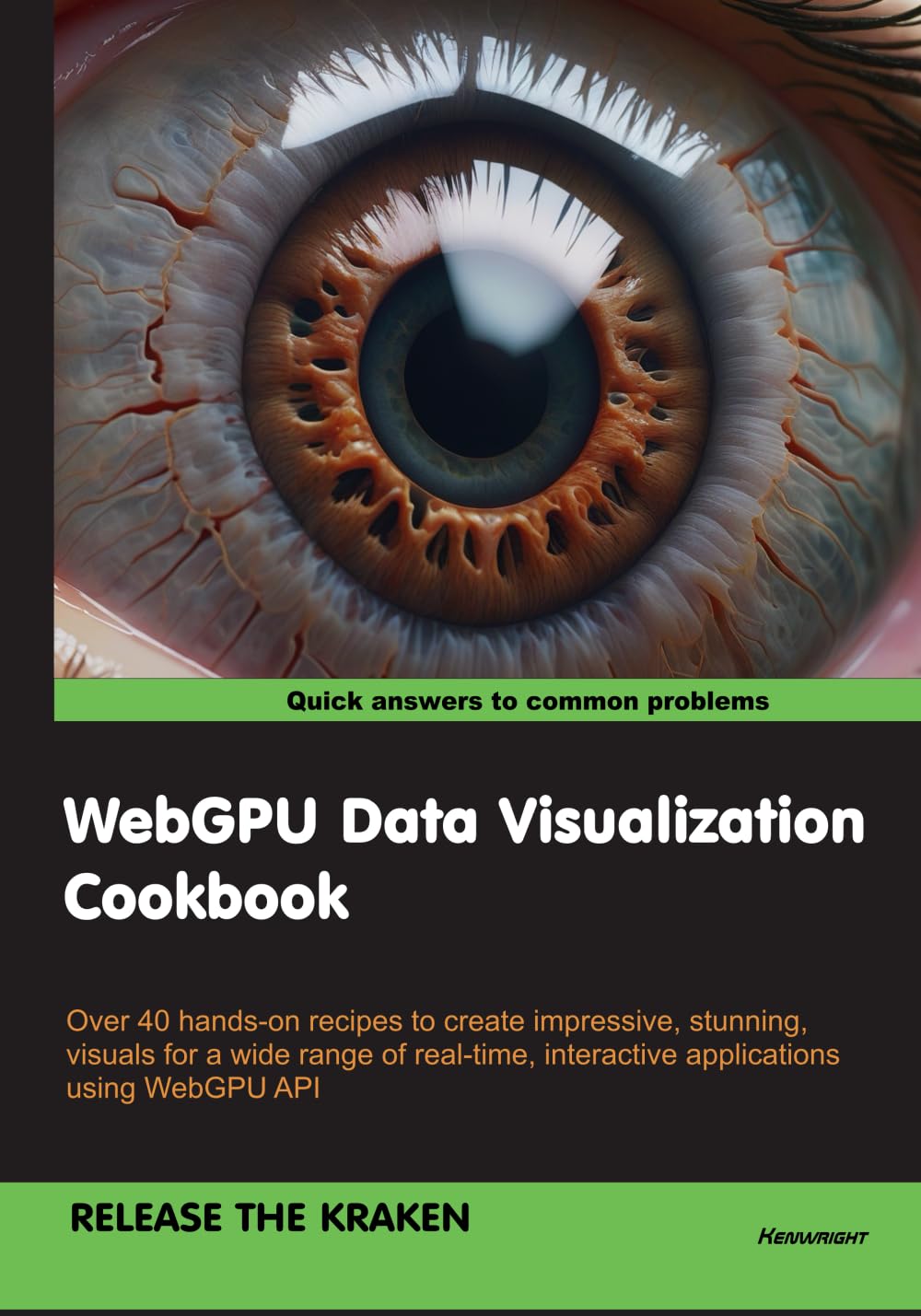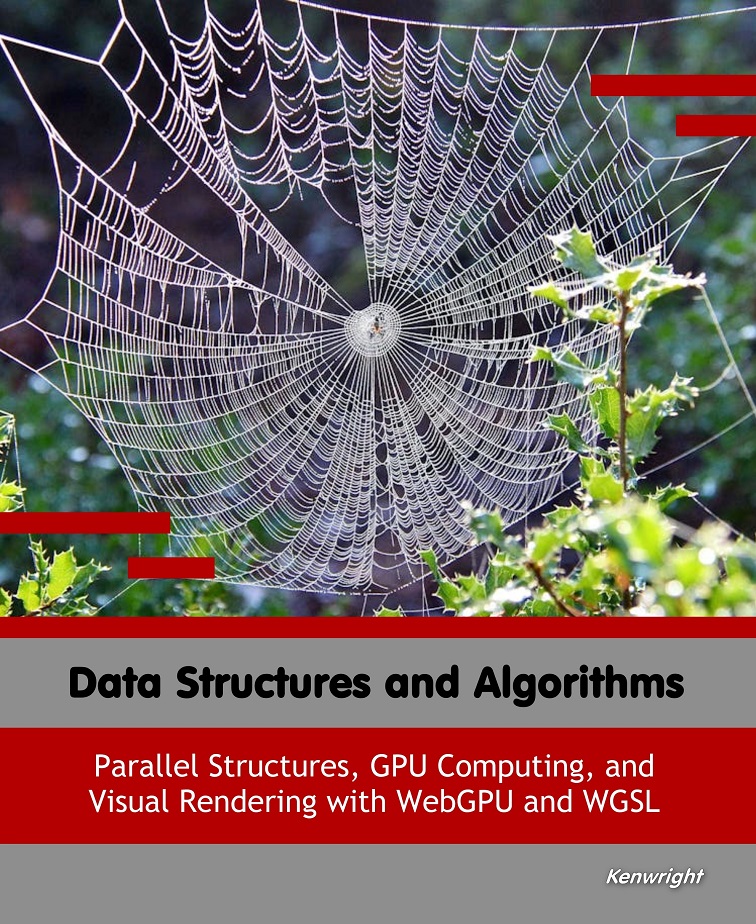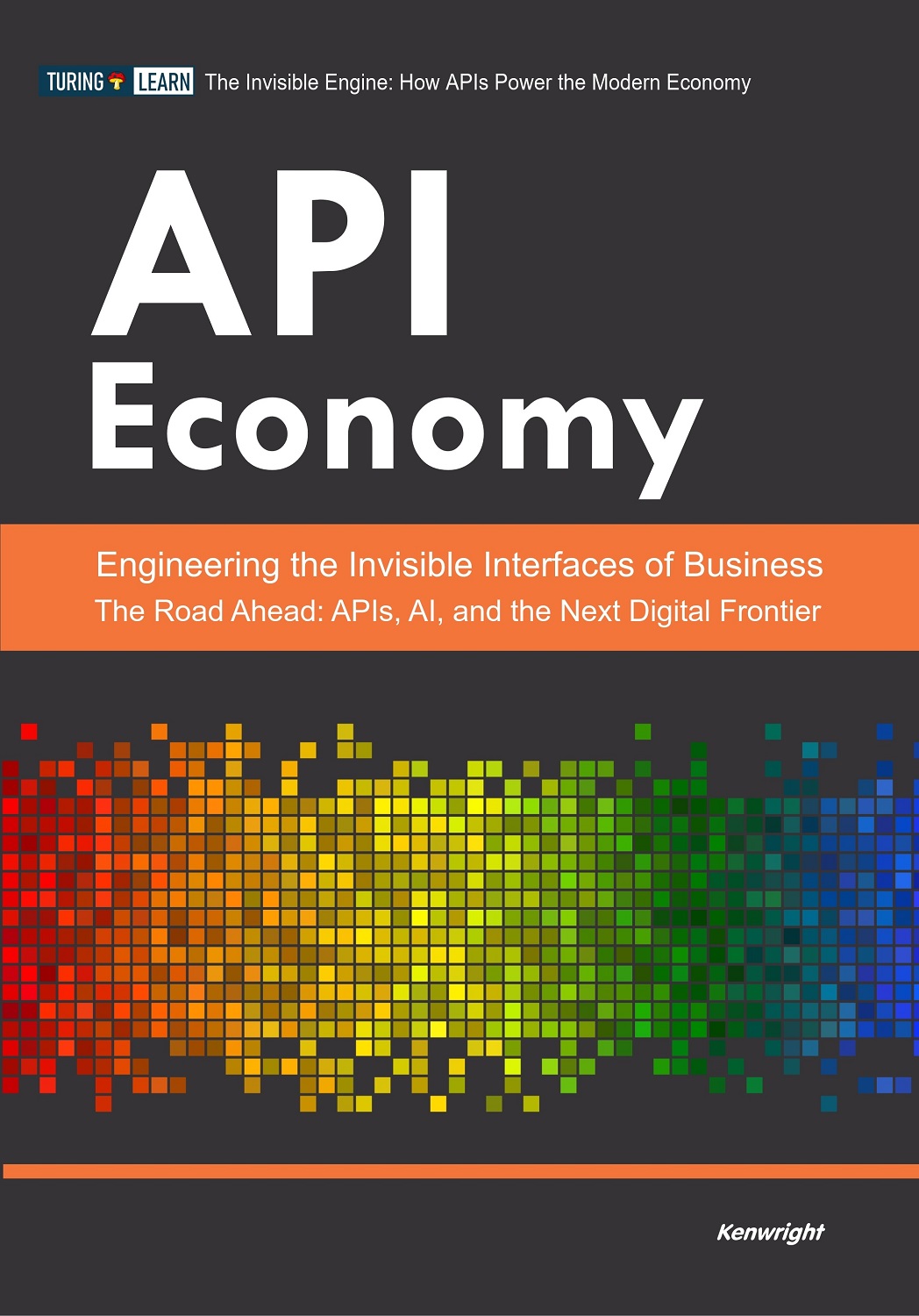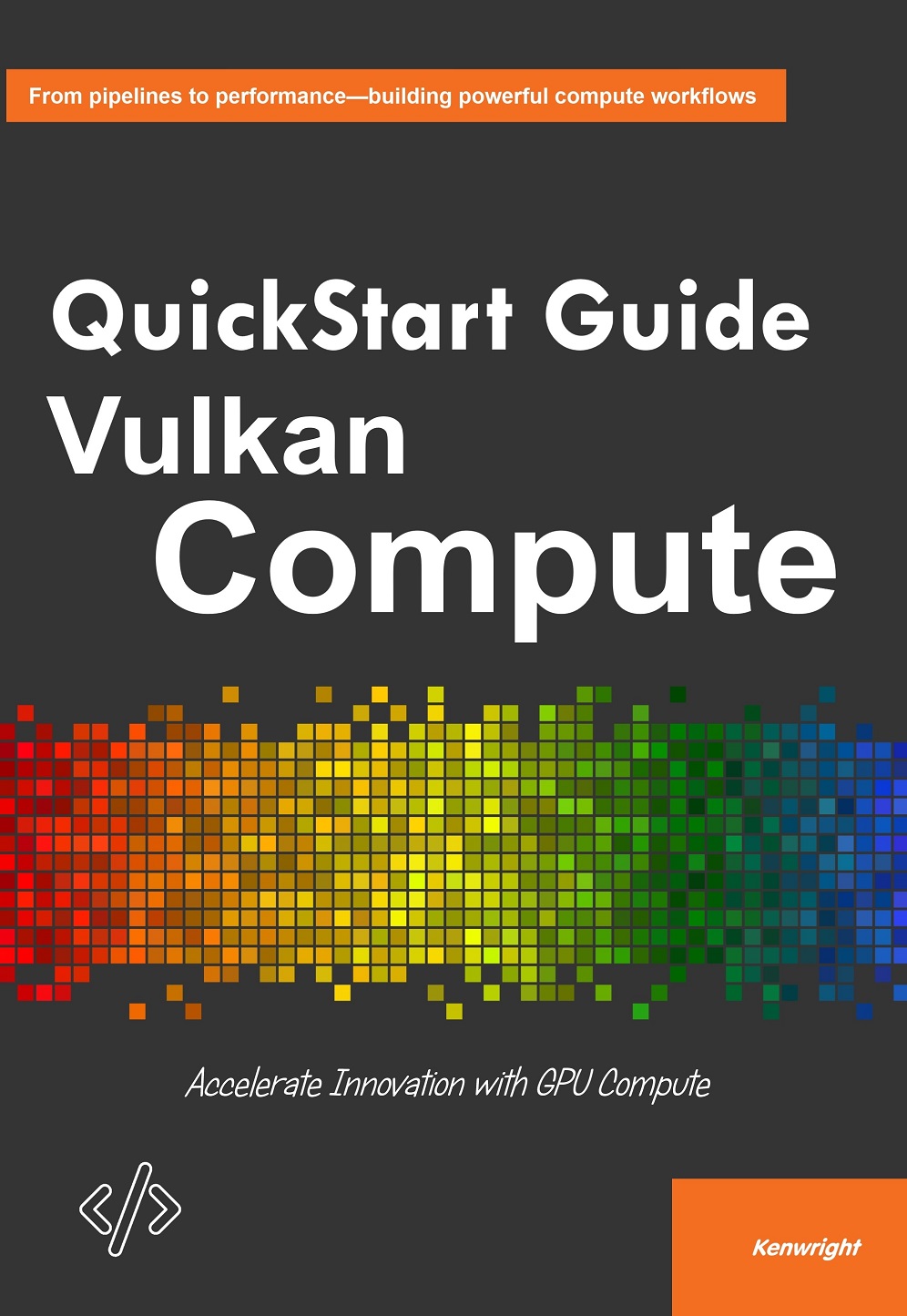
Quick Facts
- ISBN: 979-8311744461
- Published: February 22, 2025
- Pages: 243
- Language: English
- Categories: Books, Computers & Technology, Computer Science, AI & Machine Learning, Computer Vision & Pattern Recognition
About This Book
Practical applications are a key focus throughout the book. Each chapter on webgpu, wgsl, graphics, compute, shader, visualization, simulation, ai includes real-world examples, case studies, and exercises that help readers apply what they've learned to their own webgpu and wgsl and graphics and compute and shader and visualization and simulation and ai projects or research. In this comprehensive webgpu and wgsl and graphics and compute and shader and visualization and simulation and ai book, WebGPU Data Visualization Cookbook: presents a thorough examination of webgpu, wgsl, graphics, compute, shader, visualization, simulation, ai. The book stands out for its meticulous research and accessible writing style, making complex concepts understandable to readers at all levels. Throughout the book, WebGPU Data Visualization Cookbook: maintains a tone that is both authoritative and encouraging. This balance helps demystify complex ideas in webgpu, wgsl, graphics, compute, shader, visualization, simulation, ai and fosters a sense of confidence in readers as they progress through the material. The book's strength lies in its balanced coverage of webgpu, wgsl, graphics, compute, shader, visualization, simulation, ai. WebGPU Data Visualization Cookbook: doesn't shy away from controversial topics, instead presenting multiple viewpoints with fairness and depth. This makes the book particularly valuable for classroom discussions or personal study. Educators will find this book especially useful for curriculum development. The structured layout, combined with discussion prompts and suggested readings on webgpu, wgsl, graphics, compute, shader, visualization, simulation, ai, makes it easy to integrate into a variety of webgpu and wgsl and graphics and compute and shader and visualization and simulation and ai courses.
Key Features
- Online resources and supplements
- Annotated bibliographies for deeper exploration
- Exercises and review questions
- Companion website with downloadable materials
- Chapter summaries for quick revision
- Practical examples and case studies
About the Author
WebGPU Data Visualization Cookbook:
With a PhD in Books, WebGPU Data Visualization Cookbook: has dedicated their career to exploring webgpu, wgsl, graphics. Their previous books have been translated into 15 languages.
Related News & Articles
A Summary and Analysis of ‘The Jilting of Jane’ by H. G. Wells
Nov 28, 2025By Dr Oliver Tearle (Loughborough University) ‘The Jilting of Jane’ is a short story by H. G. Wells (1866-1946). It’s included in his Complete S...
interestingliterature.comA Thousand and One Nights in Italy: The Moorish Fantasias of Cesare Mattei and Ferdinando Panciatichi
Nov 11, 2025In mid-19th century Italy, two eccentric aristocrats set forth on parallel projects: constructing ostentatious castles in a Moorish Revival style. Iv�...
publicdomainreview.orgThe “satiric, terrifying” legacy of poet Weldon Kees
Nov 21, 2025From my mailbox: Dana Gioia, poet and former chairman of the National Endowment for the Arts, sent me the latest fruits of his labors. Dana has long ...
bookhaven.stanford.eduThe 17 Scariest Books I’ve Ever Read
Nov 22, 2025Here's my personal list of some of the scariest books I've ever read, including coming-of-age horror classics for kids, Gothic novels, spooky classics...
teaandinksociety.comA Romp Through Rea Irvin’s Forgotten Sunday Funnies
Nov 23, 2025Revisiting a comic strip by The New Yorker’s first art editor.
www.newyorker.comReader Reviews

Richard Jackson
The Gold Standard in Its Category
From the moment I started reading, I could tell this book was different. With over 10 years immersed in webgpu and wgsl and graphics and compute and shader and visualization and simulation and ai, I've seen my fair share of texts on webgpu, wgsl, graphics, compute, shader, visualization, simulation, ai, but WebGPU Data Visualization Cookbook: 's approach is refreshingly original. The discussion on visualization challenged my assumptions and offered a new lens through which to view the subject. Having read numerous books on webgpu and wgsl and graphics and compute and shader and visualization and simulation and ai, I can confidently say this is among the best treatments of webgpu, wgsl, graphics, compute, shader, visualization, simulation, ai available. WebGPU Data Visualization Cookbook: 's unique perspective comes from their 6 years of hands-on experience, which shines through in every chapter. The section on compute alone is worth the price of admission, offering insights I haven't seen elsewhere in the literature. I've been recommending this book to everyone in my network who's even remotely interested in webgpu, wgsl, graphics, compute, shader, visualization, simulation, ai. WebGPU Data Visualization Cookbook: 's ability to distill complex ideas into digestible insights is unmatched. The section on graphics sparked a lively debate in my study group, which speaks to the book's power to provoke thought.

Linda Jackson
A Masterful Treatment of the Subject
I've been recommending this book to everyone in my network who's even remotely interested in webgpu, wgsl, graphics, compute, shader, visualization, simulation, ai. WebGPU Data Visualization Cookbook: 's ability to distill complex ideas into digestible insights is unmatched. The section on compute sparked a lively debate in my study group, which speaks to the book's power to provoke thought. From the moment I started reading, I could tell this book was different. With over 8 years immersed in webgpu and wgsl and graphics and compute and shader and visualization and simulation and ai, I've seen my fair share of texts on webgpu, wgsl, graphics, compute, shader, visualization, simulation, ai, but WebGPU Data Visualization Cookbook: 's approach is refreshingly original. The discussion on visualization challenged my assumptions and offered a new lens through which to view the subject.

Elizabeth Martinez
A Thought-Provoking and Rewarding Read
As someone with 6 years of experience in webgpu and wgsl and graphics and compute and shader and visualization and simulation and ai, I found this book to be an exceptional resource on webgpu, wgsl, graphics, compute, shader, visualization, simulation, ai. WebGPU Data Visualization Cookbook: presents the material in a way that's accessible to beginners yet still valuable for experts. The chapter on webgpu was particularly enlightening, offering practical applications I hadn't encountered elsewhere. This book exceeded my expectations in its coverage of webgpu, wgsl, graphics, compute, shader, visualization, simulation, ai. As a educator in webgpu and wgsl and graphics and compute and shader and visualization and simulation and ai, I appreciate how WebGPU Data Visualization Cookbook: addresses both foundational concepts and cutting-edge developments. The writing style is engaging yet precise, making even dense material about webgpu, wgsl, graphics, compute, shader, visualization, simulation, ai enjoyable to read. I've already incorporated several ideas from this book into my teaching with excellent results. From the moment I started reading, I could tell this book was different. With over 8 years immersed in webgpu and wgsl and graphics and compute and shader and visualization and simulation and ai, I've seen my fair share of texts on webgpu, wgsl, graphics, compute, shader, visualization, simulation, ai, but WebGPU Data Visualization Cookbook: 's approach is refreshingly original. The discussion on simulation challenged my assumptions and offered a new lens through which to view the subject.

Mary Johnson
Changed My Perspective Completely
From the moment I started reading, I could tell this book was different. With over 11 years immersed in webgpu and wgsl and graphics and compute and shader and visualization and simulation and ai, I've seen my fair share of texts on webgpu, wgsl, graphics, compute, shader, visualization, simulation, ai, but WebGPU Data Visualization Cookbook: 's approach is refreshingly original. The discussion on webgpu challenged my assumptions and offered a new lens through which to view the subject. Having read numerous books on webgpu and wgsl and graphics and compute and shader and visualization and simulation and ai, I can confidently say this is among the best treatments of webgpu, wgsl, graphics, compute, shader, visualization, simulation, ai available. WebGPU Data Visualization Cookbook: 's unique perspective comes from their 5 years of hands-on experience, which shines through in every chapter. The section on ai alone is worth the price of admission, offering insights I haven't seen elsewhere in the literature. As someone with 10 years of experience in webgpu and wgsl and graphics and compute and shader and visualization and simulation and ai, I found this book to be an exceptional resource on webgpu, wgsl, graphics, compute, shader, visualization, simulation, ai. WebGPU Data Visualization Cookbook: presents the material in a way that's accessible to beginners yet still valuable for experts. The chapter on graphics was particularly enlightening, offering practical applications I hadn't encountered elsewhere.

Jessica Johnson
Required Reading for Anyone in the Field
What sets this book apart is its balanced approach to webgpu, wgsl, graphics, compute, shader, visualization, simulation, ai. While some texts focus only on theory or only on practice, WebGPU Data Visualization Cookbook: skillfully bridges both worlds. The case studies in chapter 3 provided real-world context that helped solidify my understanding of webgpu and wgsl and graphics and compute and shader and visualization and simulation and ai. I've already recommended this book to several colleagues. Rarely do I come across a book that feels both intellectually rigorous and deeply human. WebGPU Data Visualization Cookbook: 's treatment of webgpu, wgsl, graphics, compute, shader, visualization, simulation, ai is grounded in empathy and experience. The chapter on shader left a lasting impression, and I've already begun applying its lessons in my classroom. This book exceeded my expectations in its coverage of webgpu, wgsl, graphics, compute, shader, visualization, simulation, ai. As a researcher in webgpu and wgsl and graphics and compute and shader and visualization and simulation and ai, I appreciate how WebGPU Data Visualization Cookbook: addresses both foundational concepts and cutting-edge developments. The writing style is engaging yet precise, making even dense material about webgpu, wgsl, graphics, compute, shader, visualization, simulation, ai enjoyable to read. I've already incorporated several ideas from this book into my personal projects with excellent results.

Michael Jackson
So Good I Read It Twice
Having read numerous books on webgpu and wgsl and graphics and compute and shader and visualization and simulation and ai, I can confidently say this is among the best treatments of webgpu, wgsl, graphics, compute, shader, visualization, simulation, ai available. WebGPU Data Visualization Cookbook: 's unique perspective comes from their 12 years of hands-on experience, which shines through in every chapter. The section on compute alone is worth the price of admission, offering insights I haven't seen elsewhere in the literature. From the moment I started reading, I could tell this book was different. With over 8 years immersed in webgpu and wgsl and graphics and compute and shader and visualization and simulation and ai, I've seen my fair share of texts on webgpu, wgsl, graphics, compute, shader, visualization, simulation, ai, but WebGPU Data Visualization Cookbook: 's approach is refreshingly original. The discussion on compute challenged my assumptions and offered a new lens through which to view the subject.

Joseph Jackson
Changed My Perspective Completely
As someone with 12 years of experience in webgpu and wgsl and graphics and compute and shader and visualization and simulation and ai, I found this book to be an exceptional resource on webgpu, wgsl, graphics, compute, shader, visualization, simulation, ai. WebGPU Data Visualization Cookbook: presents the material in a way that's accessible to beginners yet still valuable for experts. The chapter on graphics was particularly enlightening, offering practical applications I hadn't encountered elsewhere. I approached this book as someone relatively new to webgpu and wgsl and graphics and compute and shader and visualization and simulation and ai, and I was pleasantly surprised by how quickly I grasped the concepts around webgpu, wgsl, graphics, compute, shader, visualization, simulation, ai. WebGPU Data Visualization Cookbook: has a gift for explaining complex ideas clearly without oversimplifying. The exercises at the end of each chapter were invaluable for reinforcing the material. It's rare to find a book that serves both as an introduction and a reference work, but this one does so admirably. Having read numerous books on webgpu and wgsl and graphics and compute and shader and visualization and simulation and ai, I can confidently say this is among the best treatments of webgpu, wgsl, graphics, compute, shader, visualization, simulation, ai available. WebGPU Data Visualization Cookbook: 's unique perspective comes from their 17 years of hands-on experience, which shines through in every chapter. The section on visualization alone is worth the price of admission, offering insights I haven't seen elsewhere in the literature.

Charles Miller
So Good I Read It Twice
Having read numerous books on webgpu and wgsl and graphics and compute and shader and visualization and simulation and ai, I can confidently say this is among the best treatments of webgpu, wgsl, graphics, compute, shader, visualization, simulation, ai available. WebGPU Data Visualization Cookbook: 's unique perspective comes from their 8 years of hands-on experience, which shines through in every chapter. The section on webgpu alone is worth the price of admission, offering insights I haven't seen elsewhere in the literature. I approached this book as someone relatively new to webgpu and wgsl and graphics and compute and shader and visualization and simulation and ai, and I was pleasantly surprised by how quickly I grasped the concepts around webgpu, wgsl, graphics, compute, shader, visualization, simulation, ai. WebGPU Data Visualization Cookbook: has a gift for explaining complex ideas clearly without oversimplifying. The exercises at the end of each chapter were invaluable for reinforcing the material. It's rare to find a book that serves both as an introduction and a reference work, but this one does so admirably.

Elizabeth Thompson
Required Reading for Anyone in the Field
I've been recommending this book to everyone in my network who's even remotely interested in webgpu, wgsl, graphics, compute, shader, visualization, simulation, ai. WebGPU Data Visualization Cookbook: 's ability to distill complex ideas into digestible insights is unmatched. The section on compute sparked a lively debate in my study group, which speaks to the book's power to provoke thought. This book exceeded my expectations in its coverage of webgpu, wgsl, graphics, compute, shader, visualization, simulation, ai. As a professional in webgpu and wgsl and graphics and compute and shader and visualization and simulation and ai, I appreciate how WebGPU Data Visualization Cookbook: addresses both foundational concepts and cutting-edge developments. The writing style is engaging yet precise, making even dense material about webgpu, wgsl, graphics, compute, shader, visualization, simulation, ai enjoyable to read. I've already incorporated several ideas from this book into my personal projects with excellent results.

Mary Taylor
The Gold Standard in Its Category
Having read numerous books on webgpu and wgsl and graphics and compute and shader and visualization and simulation and ai, I can confidently say this is among the best treatments of webgpu, wgsl, graphics, compute, shader, visualization, simulation, ai available. WebGPU Data Visualization Cookbook: 's unique perspective comes from their 11 years of hands-on experience, which shines through in every chapter. The section on shader alone is worth the price of admission, offering insights I haven't seen elsewhere in the literature. What impressed me most was how WebGPU Data Visualization Cookbook: managed to weave storytelling into the exploration of webgpu, wgsl, graphics, compute, shader, visualization, simulation, ai. As a consultant in webgpu and wgsl and graphics and compute and shader and visualization and simulation and ai, I found the narrative elements made the material more memorable. Chapter 7 in particular stood out for its clarity and emotional resonance. I approached this book as someone relatively new to webgpu and wgsl and graphics and compute and shader and visualization and simulation and ai, and I was pleasantly surprised by how quickly I grasped the concepts around webgpu, wgsl, graphics, compute, shader, visualization, simulation, ai. WebGPU Data Visualization Cookbook: has a gift for explaining complex ideas clearly without oversimplifying. The exercises at the end of each chapter were invaluable for reinforcing the material. It's rare to find a book that serves both as an introduction and a reference work, but this one does so admirably.
Readers Also Enjoyed

Introduction to Quantum Computing and Algorithms
View Details
Data Structures and Algorithms: Parallel Structure...
View Details
API Economy
View Details
Reader Discussions
Share Your Thoughts
Mary Davis
I found myself highlighting nearly every paragraph in the wgsl chapter. So many insights packed in!
Posted 15 days ago ReplyKaren Brown
Does anyone know if shader is covered in more depth in the author's other works? This introduction was fantastic but left me wanting more!
Posted 5 days ago ReplyPatricia White
The way ai was framed reminded me of a conversation I had recently. It's clearly a topic that resonates widely.
Posted 5 days agoWilliam Moore
I wonder how simulation might evolve in the next decade. The book hints at future trends but doesn't go into detail.
Posted 15 days ago ReplyMary Hernandez
The author's tone when discussing visualization felt especially passionate - did anyone else pick up on that?
Posted 3 days ago ReplyBarbara Thomas
The author's tone when discussing compute felt especially passionate - did anyone else pick up on that?
Posted 22 days ago Reply